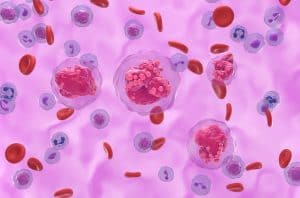Pharma accused of hiding behind regulation and undermining NICE
pharmafile | April 29, 2015 | News story | Medical Communications, Sales and Marketing | NHS, NICE, Royal Society of Medicine, UK, brett wells, health, pharma
University of York health economists have argued that pharma regulation is not evidence-based, lacks accountability and undermines NICE.
Writing in the Royal Society of Medicine, Professors Alan Maynard and Karen Bloor from the Department of Health Sciences say the appraisal processes carried out by NICE have come under attack by pharma – from the moment it was set up in 1999.
The net result of this they argue, is that the NHS is spending too much money on drugs because the government is allowing this to happen, and that companies are effectively being subsidised and forcing NICE to approve costly treatments.
“This system is inflationary and has added billions to NHS costs since 1999, partly because the cost-per-QALY threshold is relatively high, contentious and is not evidence-based.
“It is inefficient because pharmaceuticals are financed regardless of whether they meet an appropriate cost-QALY threshold, subverting NICE processes. It is inequitable because it discriminates against other diseases which may be equally in need of additional funding,” they write.
Highlighting the evaluation of end-of-life products such as cancer drugs, they add that in 2009 NICE was instructed to increase the threshold of the cost: QALY ratio (QALY = one year of good quality life) for these drugs from £30,000.
If a product is shown to produce a QALY for a suitable cost, NICE approves it for use in the NHS and commissioners are obliged to fund it. Provided firms do not exceed regulated rates of return on historical capital set out in the Pharmaceutical Price Regulation Scheme agreements, they can then set their own prices.
The authors therefore call for greater transparency on negotiations on drugs pricing and other regulatory processes, including patent protection.
But also singled out for criticism is what they deem as the ‘unfair’ Cancer Drugs Fund, which assigns £280 million a year to drugs not approved by NICE. The current government increased the fund recently they say – in order just to garner votes from public interest groups and to subsidise the pharma industry.
They add all this combines to stifle research into other, more innovative and beneficial products for the health service.
Brett Wells
Related Content

NICE recommends migraine treatment for NHS use
The National Institute for Health and Care Excellence (NICE) has shared draft guidance recommending AbbVie’s …

GSK’s Jemperli recommended by NICE for endometrial cancer treatment
GSK has announced that the National Institute for Health and Care Excellence (NICE) has recommended …

NICE recommends SC treatment of AbbVie’s Tepkinly for patients with DLBCL
AbbVie has announced that the National Institute for Health and Care Excellence (NICE) has recommended …








